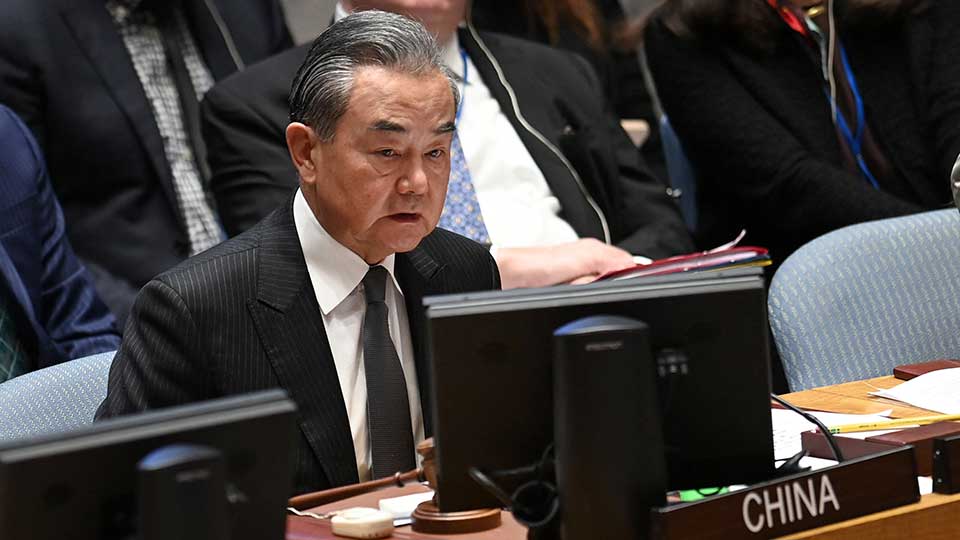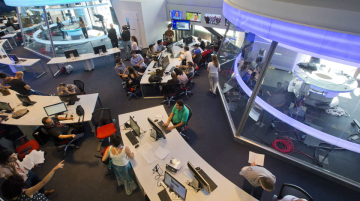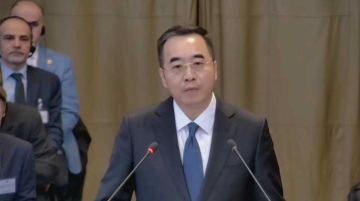
By Lukas Fiala 方朗克
With a first truce between Israel and Hamas and the initial release of hostages in the headlines, we should begin to draw wider lessons from China’s response to the crisis to enhance our understanding of Beijing’s approach to overseas insecurity.
As we wrote last month, China had initially appeared neutral to present itself as a potential mediator in the conflict. While Beijing’s official rhetoric soon became more pro-Palestinian, claiming that Israel’s response to the Hamas attack had gone beyond self-defense, Beijing’s initial statements called for de-escalation, restraint by both sides, and a long-term (two-state) solution.
The deadly explosion at the al-Ahli Arab Hospital in Gaza on October 17 then most likely represented a turning point. Calling for “an immediate ceasefire and cessation of hostilities,” Beijing proceeded to strategically position China as an amplifier of the emerging resistance across the Arab and Muslim world.
On the strategic level, some have described China’s approach as “anti-Western neutrality” and likened Beijing’s modus operandi to its diplomatic maneuvering vis-à-vis Russia and Ukraine.
Just as in Ukraine, however, China has certainly steered to one side more than the other. In the context of Xi Jinping’s Global Security Initiative (GSI), which heralds a more assertive perspective on security cooperation with an eye on growing tensions between China and the West, Beijing is operationalizing a security strategy aimed at gaining ground vis-à-vis the U.S. and their allies by presenting China as the responsible partner of choice and offering an alternative to the pro-Israeli U.S.
Over the past month, China has put this strategic effort into practice via two avenues. Multilaterally, as China took over the UN Security Council Presidency in November, it began utilizing the platform to promote a pro-Palestinian position. Following Beijing’s self-proclaimed leadership role of the Global South, China’s statements have reflected an ambition to represent Palestinian agency in the geopolitics of the Middle East by “…bring[ing] the Palestinian question back to the track of the two-state solution.”
With the UN Security Council in gridlock, China’s efforts also went beyond the traditional multilateral architecture by hosting delegations of Arab and Muslim-majority countries. Just last week, China’s top foreign policy official, Wang Yi, met foreign ministers from Saudi Arabia, Egypt, Jordan, Palestine and Indonesia in Beijing.
The symbolism of the meeting was not lost on Wang Yi, stating: “The fact that the delegation chose China as the first leg of their tour for international mediation shows deep trust in China.”
Bilaterally, Beijing began to deploy its Middle East Envoy, Zhai Jun, to meet with relevant regional stakeholders. In past cases including South Sudan and Ethiopia, China has utilized this kind of “shuttle diplomacy” to gather insights about conflict dynamics and project China’s image as a constructive party to a regional issue. While Zhai reiterated China’s aforementioned talking points, he also acknowledged Beijing’s and Moscow’s common position on the Palestine question.
Taken together, China has thus adopted a comprehensive approach to the conflict over the past month, leveraging both bilateral and multilateral channels to present China as a different partner to the pro-Israeli U.S. and its partners. While China may not emerge as the mediator of choice for all parties involved, Beijing has thus chosen a clearer position and put tools in place to promote it. And when we eventually arrive at a new status quo in Gaza, China may well occupy a more influential position in the Arab world than before.
Lukas Fiala 方朗克 is the project coordinator for the China Foresight initiative at LSE IDEAS.





